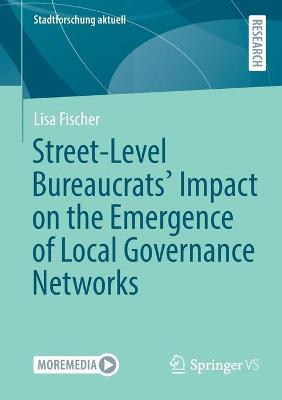Stadtforschung aktuell
1 total work
Street-Level Bureaucrats' Impact on the Emergence of Local Governance Networks
by Lisa Fischer
Published 21 November 2021
This book focusses on the emergence of local governance networks and examines the role of street-level bureaucrats during this process. It aims to identify whether some organizations are favored as state partners, whereas others have a lower chance of becoming part of such networks. Four different potential logics explaining such divergencies are developed. To find out how street-level bureaucrats influence the formation of governance networks this study considers Germany as an empirical case and takes a closer look at the work of volunteer managers. To identify unequal behavior of bureaucrats, a mixed-methods design is used, including qualitative interviews as well as an innovative field experiment.
